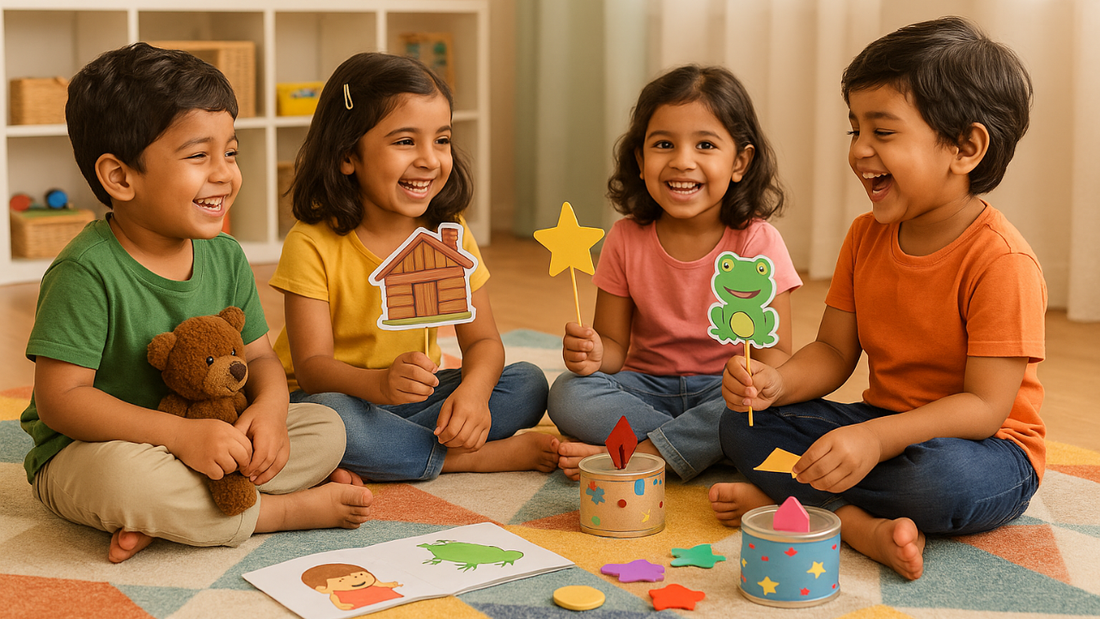
Playful Connections: Building Communication and Empathy Through Play
LiLLBUDPlay is more than just fun. It is how children learn to connect with the world. Beyond laughter and make-believe, play teaches kids to listen. These early social skills become the foundation for meaningful relationships as they grow.
Why Social Skills Matter Early On
Early social skills get children ready for school. They help with friendships and teamwork later on. Through play, kids learn to:
- Express emotions in healthy ways.
-
Build empathy by imagining how others feel.
-
Practice verbal and non-verbal communication.
- Solve problems when challenges arise in a game.
Ways Play Strengthens Social Development
1. Pretend Play Sparks Imagination & Understanding
When kids engage in pretend play, like “house,” “doctor,” or “shopkeeper”. They act out different roles and responsibilities. The role-play activities help them to practice and empathy, knowing what it may be like to be another person.
2. Storytelling Games Encourage Expression
Easy games such as "Once upon a time…" where everyone contributes a line to the story enable children to build vocabulary, listen attentively, and gain confidence in putting thoughts into words.
3. Group Games Foster Turn-Taking & Patience
To encourage social behaviour and interaction, introduce games like “Duck, Duck, Goose” or “Musical Chairs”. Such games teach children to wait, observe, and join in when it’s their turn. These are all essential parts of respectful social interaction.
4. Collaborative Building Activities Promote Teamwork
Working together builds cooperation and communication while playing with blocks, magnetic tiles, or LEGOs. Children have to plan, negotiate, and solve problems to finish a shared task or a problem.
5. Emotion Games Build Awareness
Games such as "Feelings Charades" or facial expression flashcards assist children in recognizing feelings in themselves and others, building emotional intelligence.
Role of Parents and Caregivers
-
Model good social skills: Use "please" and "thank you," demonstrate listening, and be empathetic.
- Guide gently: Encourage children to resolve conflicts using words or simple solutions, instead of solving conflicts instantly.
- Celebrate effort: Acknowledge them when they are kind, patient, or have good communication.
Nurturing Future Friendships
Every giggle, every role-play scenario, and every group game is shaping how children will connect with others in the future. You keep them busy, yes. But you also help them grow into kind people. They become sure of themselves and good with others.

